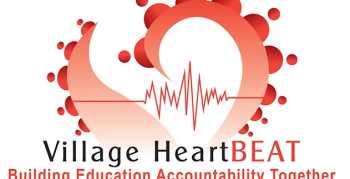Summary of Grant Program
Mecklenburg County Public Health, Community Grants & Partnership requests annual grant proposals to provide grassroots, community, and faith-based organizations with funding, capacity-building resources, and technical support to implement programs or initiatives focusing on Chronic Disease Prevention, Education, and Management. Funded organizations will implement evidence-based strategies in areas of Mecklenburg County most likely to experience increased rates of chronic diseases and related deaths, and the Public Health priority area zip codes: (28205, 28206, 28208, 28212, 28216, 28217).
The Live Well Grant Program directly supports the implementation of work aligned with the Mecklenburg County Community Health Assessment (CHA) priorities helping to improve health outcomes in historically under-resourced communities, and the Community Health Improvement Plan (CHIP), a strategic plan to address health inequities and priorities identified in the CHA report.
Annual grants program to support grassroots, community, and faith-based organizations.
Grantees receive funding, capacity-building resources, and technical support to implement chronic disease prevention initiatives aligned with Mecklenburg County Community Health Improvement Plan priorities.
Funding for the Live Well Grant program is provided on a reimbursement basis.
This year’s Live Well funding amount is $125,000.00, with each grant award equaling up to $15,000.00.
Program Requirements
- Applicant conducts local work in Mecklenburg County.
- Applicant must provide monthly reports including activities, the number of residents reached, and program outcomes.
- Applicant is volunteer-driven or has no more than 10 full-time paid staff.
- Applicant has a tax ID, and non-profit, 501c organizations
- Applicant must be an active vendor with Mecklenburg County.
- Grant funds MUST focus on the following: (Chronic disease prevention & education, and food security).
- Grant funds must target the underserved population or Public Health priority area Zip Codes: 28205, 28206, 28208, 28212, 28216, 28217.
Grantee Organizations must...
- Be a faith-based organization (FBO), non-profit organization
- Be an active vendor with Mecklenburg County
- - https://mecknc-vss.hostams.com/PRDVSS1X1/Advantage4
- Be volunteer-driven with no more than 10 staff.
- Provide proof of insurance (general liability, auto insurance, and workers’ comp)
- Submit monthly program updates/status reports
Grant Activities must...
- Be conducted in Mecklenburg County
- Focus on chronic disease prevention
- Be an existing program or demonstrate the ability to implement a new program within 30 days of the grant award.
The Live Well grant program will only fund the following programs and activities:
- Tobacco Prevention and Cessation (e.g. tobacco education, tobacco prevention policies and signage, cessation resources and education)
- Healthy Eating and Nutrition (e.g. healthy food distribution, healthy cooking demos, nutrition education, community gardens)
- Type 2 Diabetes Prevention and Management (e.g. Prevent T2 Diabetes prevention curriculum; diabetes management and education programs)
- Heart Disease and Stroke Prevention and Management (e.g. blood pressure management, heart health education, screenings)
- Cancer Prevention (e.g., breast, cervical, colorectal, and prostate screenings; screening recommendations, education, etc.)
- Active Living, Obesity Prevention (e.g. physical activity programs, policies to support active living in communities, infrastructure such as walking trails and exercise equipment available to the public, etc.)
- Preventive Health Screenings (e.g. know your numbers programs, weight, blood pressure, A1c, etc.)
The Live Well grant program will not fund the following:
- Full-time staff
- Statewide, regional, national, or international work
- Research studies
- Travel
- Gas
- Publication of books or reports
- Micro-, mini-, sub- or re-granting programs
- Retroactive expenses (pre-dating funding award)
- Cash incentives, gift cards, gas cards
Upfront Funding:
A. Funding requests must be submitted as part of the grant application’s budget section. *
B. Applicants must identify the items or services for which the upfront funding will be used by
indicating a “UF” next to that item or service.
C. The program manager will approve up to 10% of the awarded budget for upfront costs.
D. Allowable items for upfront funding may include, but are not limited to:
• Program Supplies
• Advertising and Promotion costs
• Small equipment purchases
• Facility rentals**
E. Awarded grantees must submit an invoice that lists the upfront items and their associated costs.
F.All upfront funding amounts must be used within 30 days of the disbursement from the Finance Department.
G.Receipts and all other supporting documentation must accompany the appropriate invoice submission for the upfront funding.
H. Failure to provide the supporting documentation of upfront funded items/services within the first 30 days of disbursement will forfeit your grant award.
Administrative Fees:
Administrative fees must be listed in the budget section of the grant application.
Administrative fees will be limited to the following:
- Facility use rentals
- Office Supplies
- Staff training registrations/certifications related to the program
- Software licenses
Administrator Fees:
Administrator Fees will be capped at $1,000.00 ($100.00 per month) to perform the overall program management. (Program data collection and reporting, invoice and document submissions)
This grant is funded on a reimbursement basis.
Cover Letter – 5 Points
Qualification Statement – 20 Points
Proposal Narrative – 40 Points
Proposal Performance Summary – 15 Points
Budget Summary – 20 Points
Proposal Submission Process
Proposals will be open for submission on Friday, Sept. 5, and must be submitted through the online application by Friday, Oct. 3, at 5 p.m. The online application will not be available after the deadline. Once submitted, a system-generated confirmation will be sent to acknowledge receipt of the application.
The application must be submitted electronically to be considered for grant funding. Applicants are encouraged to submit their proposals in advance of the submission deadline. An applicant's initial submission is considered final, and any subsequent, revised application submissions will not be reviewed.
FY26 Live Well Grant Timeline
Grant instructions and submission training:
September 5th, 1:00 – 3:00 PM
Last day to submit questions – Sept. 26th
FY25 Grant Application submission period:
September 5th thru October 3rd
FY26 Grant Cycle – October 2025 – June 30, 2026
Now Accepting Applications for the Live Well Grant
Grant Types
-
Live Well Community Grants

Eligible applicants: Community-based organizations may receive a maximum award of $15,000.
-
Live Well Faith-Based Grants

Eligible applicants: Village HeartBEAT and Faith-based organizations may receive a maximum award of $15,000.
Resources
Information will be available in mid-October
View videos and presentations from the grant writing training sessions.
The below links list evidence-based programs and initiatives grantees may use to support their respective focus areas.
Frequently Asked Questions
Yes, the presentations are shared on the grant’s website.
No, but if you use your personal vehicle to travel to county facilities or for county-funded programs, you may need to show proof of insurance.
No, the purpose and focus of this grant program are to assist in grassroots capacity building, education, and technical support. If you were able to apply and receive funding for a Community Services Grant. Your organization is at a higher tier and don’t qualify for this grant. This grant is for grassroots organizations that couldn’t qualify for that kind of grant.
No, it could be a combination of new and repeat participants, as some programs (fitness classes, health coaching, smoke cessation, food distribution) could have a combination in their daily and weekly activities.
Yes, the Office of Violence Prevention and Community Grants are under the Public Health Population Health Division. While they focus on violence prevention, this program focuses on addressing chronic diseases.
No, this grant is to serve residents of Mecklenburg County, and all services should be provided in Mecklenburg County.
There are many types of chronic diseases. You should be able to google and research those types.
This grant program doesn’t fund staff salaries, but if you have to pay for a trainer or a program facilitator, you can allocate funding toward the specific program activities related to the project or program. Typically, we reimburse for a few hours a week.
There’s the list of items the program will not reimburse on the grants website, but to name a few.. gas, staff time, and gift cards. if you have a specific item, please use the grants email to get approval before submitting your application.
No, this grant doesn’t reimburse any ride-share or Taxi companies.
Yes, we encourage applicants to apply for other sources of funding; what’s not allowed is receiving funding from Mecklenburg County from two different departments for the same service. If it is discovered that you are getting funds to provide the same services from the county, you will be disqualified from this program, and legal actions may be taken.
Yes, the grant training included in this program is focused on grassroots organizations that need training, coaching, and development in program design and budget creation but may be extended to other organizations outside this program.
New projects are allowed as long as they start within 90 days of the grant cycle. Existing projects are allowed as we support efforts that are already in place.
Yes
This grant funding focuses on addressing chronic disease through prevention and education. You can incorporate mental health support within the chronic disease framework, but the focus and program outcome reporting must focus on improving chronic disease health factors.
Yes
Yes, all awarded grantees must be listed as active vendors with Mecklenburg County within 30 days of receiving their grant award letter.
Yes, but you must also describe how you plan to track those residents and measure the program’s impact.
In the budget, include “UF” next to the item’s description you request the upfront funds for.

